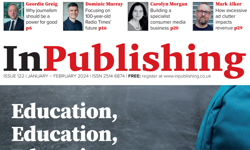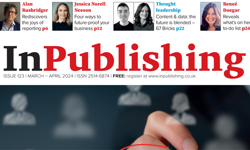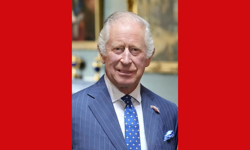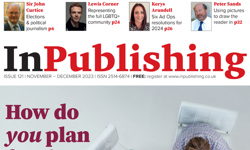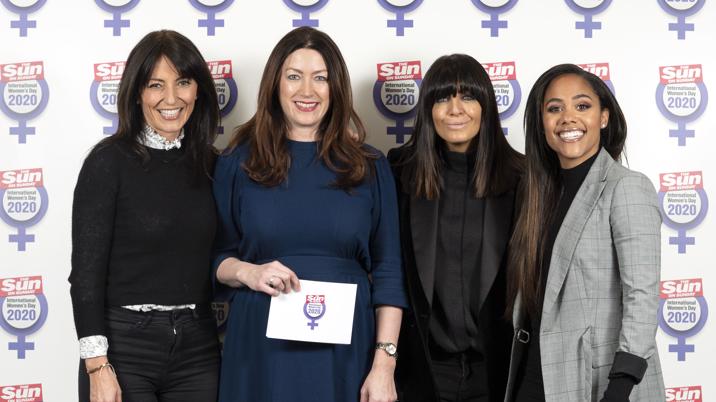
For the foreseeable future, the world of publishing (and everything else) will be seen through the prism of coronavirus. Events and strategies will either fall into a before-coronavirus or an after-coronavirus mindset.
Something similar happened after 9/11 and, to a lesser extent, the EU referendum.
Coronavirus affects everything and things that seemed important and relevant a few weeks ago, suddenly seem less so now.
Press control
One thing that has changed as a result of the virus, is the government’s attitude towards the media. Before coronavirus, it was characterised by control-freakery and an arrogant disregard for openness and accepted procedure. In the first two months of the year, the Society of Editors felt compelled to complain three times about the government’s handling of the media; firstly on the eve of Brexit, about Number 10 bypassing mainstream broadcasters and using Johnson’s own personal videographer to deliver his address to the nation, secondly, and more egregiously, to condemn Number 10 trying to hand-pick which journalists would be included in the lobby briefing, and thirdly, to complain about moving lobby briefings from the House of Commons to Number 10. All of these measures display an excessive desire to control both the message and the messenger.
It’s ironic that a government that is so hostile to the Press is led by a former journalist and magazine editor.
SoE's executive director Ian Murray: "In a free and liberal democracy, it is always best that the government engages with the media rather than attempt to bypass it. In the end, only the public is the loser when open access to those in power is closed off or restricted."
If there’s one good thing to say about the coronavirus, it is that it has forced the government to engage more openly with the Press, for the time being at least.
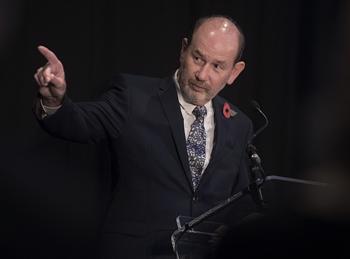
Podcast boom
Publishers continued to flex their newfound audio capabilities with a slew of new podcasts this period.
The Stories of Our Times podcast, from the Times and Sunday Times, which broadcasts weekdays at 6am, aims to become a landmark news and current affairs audio series. They have hired journalist and broadcaster Manveen Rana as the main host, with Times columnist David Aaronovitch hosting the podcast once a week.
New Scientist is launching a new weekly podcast, called, err… ‘Weekly’, to bring listeners “the most important, startling or just plain weird happenings in the world of science”. Presented by Rowan Hooper and Penny Sarchet, Weekly promises to deliver the inside knowledge on three “must-know” stories from the past week.
Meanwhile, motoring presenter and racing driver Vicki Butler-Henderson has returned to Auto Express to front a new podcast, offering a blend of automotive chat, industry insight, consumer advice, features, car reviews and opinion. Each week, we are told, Vicki will be joined by members of the Auto Express editorial team to reveal “behind the scenes stories and motoring memories”.
In the world of fashion, Porter launched a new weekly podcast: Pieces of Me: My Life in 7 Garments. The series will feature life reflections from seven “incredible” women who recount defining moments from their life through the clothing they wore at the time.
Sarah Bailey, editor-in-chief of Porter: “Pieces of Me reminds us that clothes are never just clothes and that the meanings woven through them – about beauty, power, identity, freedom, and fashion as a force-for-change – are the stories of women’s lives.”
The River Group announced a new podcast, Content Talks. The podcast launched with an eight-episode series covering the world of content. With subjects ranging from brand halos to returning membership bodies to profit, The River Group aims to give listeners an insider look into successful content strategies from industry leaders.
Nicola Murphy, CEO of The River Group: “As a B2B podcast, it was essential to us that each episode responded to our target audience's concerns and questions on the topic of content marketing, as well as bring valuable insights to help drive their strategic marketing decisions.”
We are seeing a step-change in publisher podcasts. Publishers are spending more money on them, recruiting better presenters, using better equipment and are coming up with highly original and compelling content ideas.
The sector now has its own awards too. The winners of the inaugural Publisher Podcast Awards were announced in March. Walking off with the top prize of ‘Publisher Podcast of The Year’ was The Atlantic for its Crazy / Genius podcast.
The criteria for the award was: “a podcast which was a strong reflection of the publisher’s brand, had exceptionally high production, a strong growth strategy, and a commercial plan which would see the podcast add real value for the business.” For anyone looking to launch a podcast, that’s a pretty good checklist.

Telegraph quits the ABC
In January, the Telegraph announced that it would no longer be part of the ABC, because “the ABC metric is not the key metric behind our subscription strategy and not how we measure our success”.
Roy Greenslade, writing in the Guardian, was scathing about the decision: “Leaving aside the disingenuous reference to “success”, the repudiation of ABC’s audits made no sense because the organisation measures both print and digital audiences. It is therefore possible to chart the rises and falls on both platforms, which helps media agencies to decide how and where to place their advertising. In a diplomatic response, ABC merely called the decision “disappointing”. It might well have said TMG was making a huge error by rejecting the industry’s trusted and transparent audit.”
It’s certainly important that the industry doesn’t return to the bad old days, when publishes made up their own circulation figures, got a friendly accountant to verify them and then were surprised when advertisers didn’t trust them.
International Women’s Day
A number of publications celebrated the recent International Women’s Day, including The Sun on Sunday and Marie Claire.
The 8th March edition of the Sun on Sunday carried interviews with athletes from The Women’s Sport Trust, advice from celebrities who have overcome bitter adversities, and inspirational stories from some of Britain’s leading women.
It also reported on discussions that took place during an event held by The Sun for 130 London schoolgirls. The group heard Claudia Winkleman, Davina McCall and Alex Scott talk honestly on how they faced hurdles along the road to success, and followed their own dreams.
Editor Victoria Newton: “We’re featuring stories from women who are breaking glass ceilings in the traditionally male fields of sport, science and media. And we think our readers – particularly the younger ones – will be inspired by their message that all life’s hurdles are surmountable.”
Marie Claire and Avon joined forces to host a roundtable discussion on reclaiming the negative language used to describe women and launch the
#SpeakOut campaign calling for an end to the pejorative words and phrases such as ‘bossy’, ‘lippy’ and ‘bitchy’ which are used to silence women.
Andrea Thompson, editor-in-chief: “According to the World Economic Forum, we are still a century away from gender parity. And even more alarming is the fact that England failed to even make the top ten of the 2020 Global Gender Index. Legislation is vital to close this gap, but so is the everyday language used towards and about women, and the phrases in our common vernacular which are used to silence and undermine them that are seldom applied to strong men.”
Launches
Two big publishers played to their strengths with magazine launches in the cycling and craft sectors.
Dennis, publisher of Cyclist and Cyclist Off-road, is to launch a third magazine in its cycling portfolio – Cycling Electric and Immediate Media announced the launch of Love Embroidery, a monthly craft magazine looking at the world of embroidery and modern stitching.
In the regional newspaper sector, Newsquest has been busy on the launch front. The Northern Echo launched a Teesside edition and The Packet launched a new edition covering Truro, Redruth, Camborne and west Cornwall. It also launched a new weekly title, the Salford City News.
Editor Karl Holbrook: “Salford is a really vibrant place and it is undergoing rapid change. We want to be there to both mark that change but also stand up for the heritage, culture and people that already thrive in Salford.”

And, finally, some good news
In the recent budget, the chancellor announced that from 1 December 2020, digital publications, including magazines, journals, books and newspapers will be zero-rated for VAT, in the same way as print publications.
This is a big deal.
The illogicality of having to charge VAT on some of our content, depending on how we output it, was an administrative nightmare, tying us all up in knots and making our digital output less competitive.
The VAT rules made no sense. VAT should either be charged on all of our output or none of it.
I wasn’t optimistic it would change. Governments don’t like giving up revenue streams any more than publishers do. Just look at the Dartford tolls. I vaguely recall Evan Davis at last year’s PPA festival saying there was zero chance of it ever happening.
But it has! Hats off to the PPA and other media organisations for campaigning so hard on the issue over the years.
PPA Managing Director Owen Meredith: “We are delighted that the chancellor has acted and brought an end to this unfair and illogical tax.”
“Publishers are reaching ever bigger audiences though cross-platform distribution, with digital audiences hungry for the trusted, quality content our members publish. However, monetising those audiences in the digital landscape remains challenging, and has been further hampered by a punitive tax regime that adds a 20% VAT premium to digital content.”
“Our tax system has failed to keep up with technology and recognise changing consumers habits in accessing news and information.”
Perhaps, after all, there is something to be said for having a former journalist in Number 10…
This article was first published in InPublishing magazine. If you would like to be added to the free mailing list, please register here.


